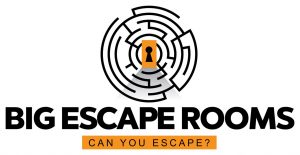30 Reasons Why Escape Rooms are Perfect for Improving Mental Health

Escape rooms, once considered mere recreational activities, have emerged as powerful tools for enhancing mental health. Beyond the adrenaline-fueled excitement and the thrill of solving puzzles, escape rooms offer a myriad of benefits for your mental well-being. In this comprehensive blog post, we’ll explore 30 reasons why engaging in escape rooms is a fantastic way to boost your mental health, providing a holistic and immersive experience that goes beyond entertainment- and how Big Escape Rooms in Silver Spring, Maryland, is the perfect place to do so.
- Cognitive Stimulation: Escape rooms are a mental workout, challenging participants with intricate puzzles that require critical thinking, problem-solving skills, and strategic planning. This cognitive stimulation contributes to improved brain function and overall mental sharpness.
- Stress Relief: Immersing yourself in the puzzles and challenges of an escape room provides a temporary escape from everyday stressors. The intense focus on solving problems and achieving objectives acts as a healthy distraction, promoting relaxation and stress relief. At Big Escape Rooms booking and preparing for escape rooms is a stress-free task.
- Teamwork and Collaboration: Many escape room scenarios emphasize teamwork and collaboration. Working with others to crack codes and unlock clues fosters a sense of camaraderie, improves communication skills, and nurtures positive social interactions.
- Enhanced Memory Function: The need to remember details, sequences, and codes within the time constraints of an escape room scenario enhances memory function. Participants find themselves honing their memory recall abilities, benefiting their cognitive abilities in the long run.
- Boost in Creativity: Escape rooms encourage participants to think creatively and approach challenges from different perspectives. The diverse puzzles and scenarios stimulate creative thinking, fostering an innovative mindset applicable to various life situations.
- Improved Concentration: With a ticking clock and the pressure to solve puzzles, escape rooms demand intense concentration. This heightened focus improves concentration levels, translating into increased productivity and efficiency in everyday tasks.
- Sense of Accomplishment: Successfully completing an escape room scenario provides a tangible sense of accomplishment. This achievement releases endorphins, promoting a positive mental state and reinforcing a belief in one’s capabilities.
- Social Interaction: Escape rooms encourage face-to-face social interaction, breaking the barriers of digital communication. Engaging with others in the pursuit of a common goal fosters a sense of belonging and alleviates feelings of isolation.
- Time Management Skills: The time constraints inherent in escape rooms teach effective time management. Participants learn to prioritize tasks, manage their time efficiently, and develop valuable skills applicable to daily life.
- Problem-Solving Under Pressure: Escape rooms simulate high-pressure situations where participants must make quick and effective decisions. This cultivates the ability to think on one’s feet, a valuable skill in both personal and professional settings.
- Enhanced Communication Skills: Effective communication is paramount in escape rooms. Participants must articulate ideas, actively listen to teammates, and convey information clearly—an essential skill set with wide-reaching benefits.
- Embracing Challenges: Escape rooms present participants with challenges that may seem initially daunting. Overcoming these challenges fosters resilience, instilling a positive and determined mindset when confronted with difficulties.
- Mood Elevation: The excitement of solving puzzles and the satisfaction of a successful escape contribute to a positive mood elevation. Engaging in enjoyable activities within escape rooms releases neurotransmitters associated with happiness, promoting emotional well-being.
- Diverse Themes for Engagement: Escape rooms come in various themes, catering to different interests and preferences. Whether you’re a fan of mystery, adventure, or horror, the diverse themes ensure an engaging and personalized experience.
- Enhanced Spatial Awareness: Navigating through the physical space of an escape room enhances spatial awareness. This heightened awareness improves coordination and spatial reasoning skills, contributing to overall cognitive development.
- Camaraderie Building: Shared experiences in escape rooms create lasting memories and strengthen bonds. The shared accomplishment of escaping fosters a sense of camaraderie, teamwork, and a positive group dynamic.
- Positive Reinforcement: Escape rooms often incorporate positive reinforcement mechanisms, such as unlocking new clues or discovering hidden passages. This positive reinforcement contributes to a more optimistic mental state.
- Mindfulness in Problem-Solving: The immersive nature of escape rooms encourages participants to be present in the moment. Focused attention on solving puzzles fosters mindfulness, promoting a state of awareness and concentration.
- Promotion of Positive Competition: Healthy competition within escape rooms can be motivating. The desire to succeed fosters a competitive spirit, encouraging participants to push their mental boundaries and achieve personal growth.
- Escape from Routine: Engaging in escape rooms provides a mental break from routine activities. The novel and challenging experiences stimulate the mind, offering a refreshing escape from the monotony of daily life.
- Enhanced Decision-Making Skills: Escape rooms demand quick and effective decision-making. Participants learn to evaluate options, make decisions under pressure, and adapt their strategies—a skill set valuable in real-world situations.
- Stimulation of Multiple Senses: Escape rooms engage multiple senses, from deciphering codes to feeling textures. This multisensory stimulation enhances cognitive functioning and sensory perception, providing a holistic mental workout.
- Facilitation of Emotional Expression: Some escape room scenarios evoke emotions, allowing participants to express and process feelings in a controlled environment. This emotional expression can have therapeutic benefits, aiding in stress relief and emotional well-being.
- Adaptability to Change: Escape rooms often introduce unexpected twists and turns. Navigating through these surprises teaches adaptability, a crucial skill for managing life’s uncertainties and embracing change.
- Enhanced Patience: Solving complex puzzles within a time limit may require patience. Engaging in escape rooms helps build patience and resilience in the face of challenges, fostering emotional well-being.
- Boost in Self-Esteem: The successful completion of an escape room scenario boosts self-esteem and self-confidence. Recognizing one’s abilities to overcome challenges contributes to a positive self-image and mental well-being.
- Encouragement of Lifelong Learning: The diverse nature of puzzles encourages a mindset of lifelong learning. Participants develop a curiosity to explore and acquire new skills, promoting continuous intellectual growth.
- Opportunity for Reflection: Escape rooms provide moments for reflection, allowing participants to contemplate their thought processes and problem-solving strategies. This reflective practice can lead to personal insights and self-awareness.
- Encouragement of Playfulness: Escape rooms promote a sense of playfulness and curiosity. Engaging in play has been linked to improved mental health and overall well-being, offering a lighthearted and enjoyable experience.
- Fostering a Sense of Wonder: Escape rooms tap into our innate sense of wonder and curiosity. The exploration of mysteries and the unknown fosters a childlike sense of wonder, contributing to a more vibrant and imaginative mindset that positively impacts mental health.
Escape rooms are not just a source of entertainment; they are a gateway to improved mental health and overall well-being. The diverse benefits, ranging from cognitive stimulation to stress relief and enhanced social interactions, make escape rooms a holistic and immersive experience for individuals seeking to unlock the potential of their mental health. So, the next time you step into an escape room, remember that you’re not just solving puzzles—you’re investing in your mental well-being and embracing a journey towards a healthier mind.





